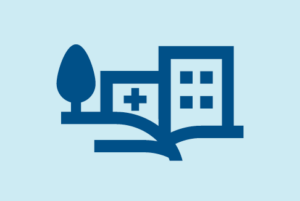This week, the U.S. House and Senate came to an important bipartisan, bicameral agreement to support hospitals and other providers as they continue to reel from the financial devastation of the COVID-19 pandemic — all while bracing for the potential of another surge due to the omicron variant. It has passed in the House of Representatives, and the Senate is expected to vote on it today or tomorrow.
The deal curbs the effect of several planned cuts to funding for hospitals and doctors: It eases a 2% Medicare hospital reimbursement reduction resulting from budget “sequestration” cuts, an additional 3.75% Medicare physician cut, and the Pay-As-You-Go (PAYGO) 4% Medicare hospital reimbursement “sequestration” budget cut. Together, these losses would have meant nearly $1.2 billion in Medicare cuts to California’s hospitals and physicians.
All told, the deal saves $760 million for California’s hospitals by eliminating the cuts for the first quarter of 2022 and reducing them by half for the second quarter of 2022, as well as eliminating the PAYGO cut completely. The measure also mitigates the planned 3.75% physician payment reduction, postpones significant payment cuts to laboratory services, and further delays burdensome reporting requirements for hospital outreach laboratories until 2023, as advocated for by CHA.
The bottom line: this deal will help protect access to hospitals and physicians by securing much-needed funding and delivering greater financial predictability for the coming year. It is expected to be promptly signed by President Biden.
CHA is particularly grateful for the leadership shown on this issue by both Speaker Nancy Pelosi and Minority Leader Kevin McCarthy, who served as key negotiators. California’s two U.S. senators, Dianne Feinstein and Alex Padilla, both signed a letter to Senate leadership urging this action before the end of the year. We are also grateful for their support and their commitment to California’s hospital patients and communities.
Eliminating these cuts has been a top priority for CHA. Earlier this week, CHA and the California Medical Association sent a joint letter to the state’s congressional delegation detailing the ongoing impact of the pandemic (hospital losses as a result of the pandemic are projected to be more than $10 billion over the past two years, even after accounting for allocated Provider Relief Funds), as well as the challenges these losses create when caring for patients, particularly the critically ill in underserved and rural communities.
Even partial cuts represent a significant financial blow during this extraordinary public health crisis. Given that, we encourage every hospital to continue to share the urgent need for relief with your individual congressional representative. And CHA will continue to press both state and federal officials on the need for ongoing support as hospitals begin to rebuild to serve their patients.
CARMELA


